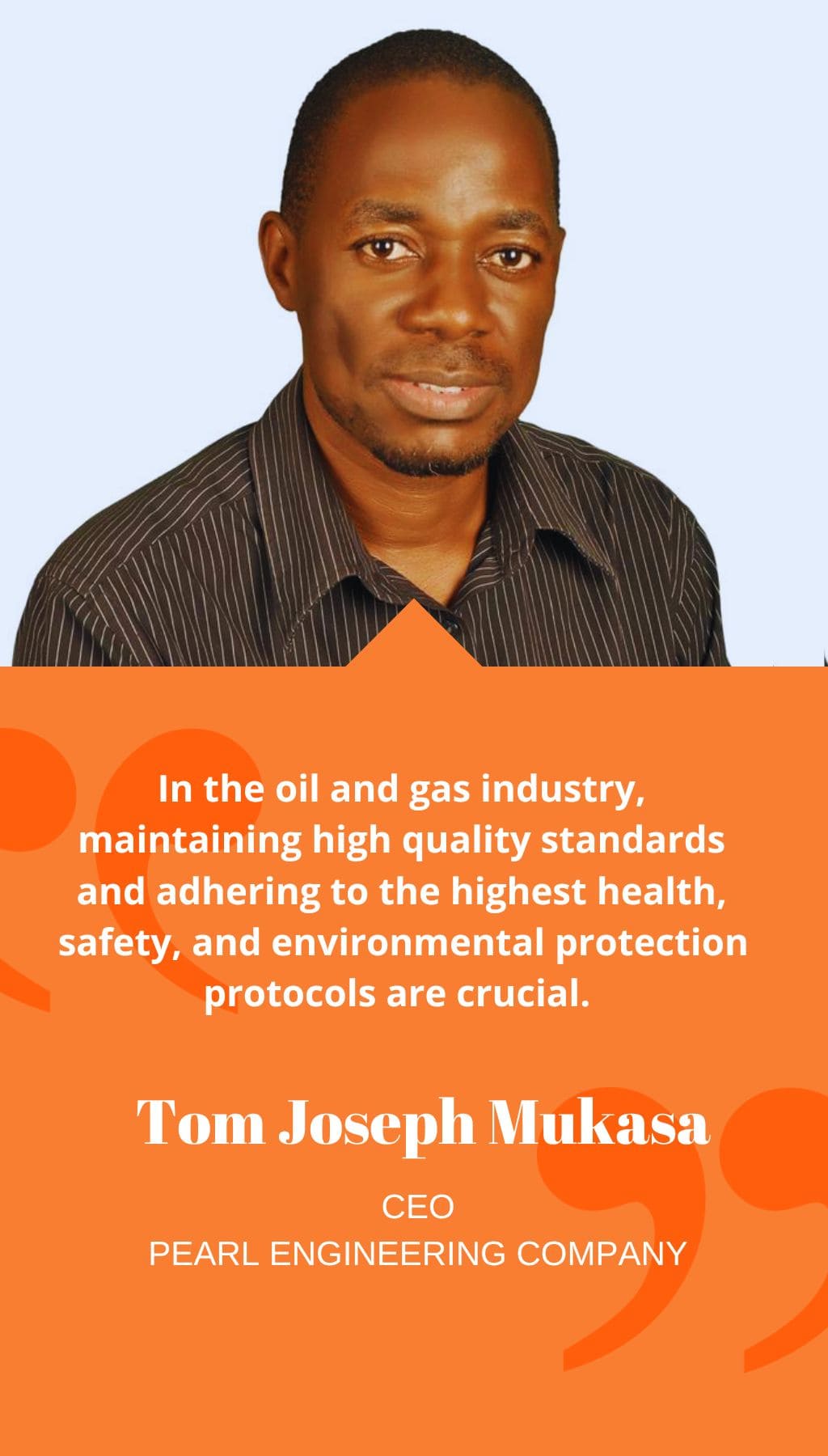
- Uganda | 22 November 2021

What developments did Pearl Engineering experience in 2021?
2021 was a slow year for Pearl Engineering due to the impact of Covid-19 on execution and bidding processes. As a result, not much happened, especially outside the oil and gas sector. However, despite the delays, we saw potential in the oil and gas industry and increased our activity. Towards the end of the year, we secured projects worth approximately USD 8 million. Additionally, we successfully completed the first batch of relocation replacement houses for Tilenga-affected families.
What are the key objectives for Pearl Engineering in 2022?
In 2022, our main objectives include bidding for various projects, particularly with Tier 1 Contractors such as McDermott and Sinopec. We are also pursuing contracts related to maintenance activities. Furthermore, we are actively seeking packages for the East African Crude Oil Pipeline (EACOP). There are execution opportunities worth close to USD 40 million, and we anticipate being awarded these contracts, which would provide us with work for the next three years.
Can you elaborate on the key strengths that have helped Pearl Engineering establish itself in the oil and gas sector?
In the oil and gas industry, maintaining high quality standards and adhering to the highest health, safety, and environmental protection protocols are crucial. Pearl Engineering has been ISO certified for a considerable period, and we have built long-standing relationships with oil and gas companies such as Heritage Oil, Tullow Oil, and Total E&P. These partnerships have been mutually beneficial, as they have supported us as one of their local content partners.
What are the challenges faced by Pearl Engineering in the oil and gas sector?
One challenge we encounter is the need for extensive preparatory work. For instance, we do not have all the material testing equipment in the field, which requires transporting certain components back to Kampala for analysis. Additionally, scaling operations on a large scale poses logistical challenges. In terms of workforce, we have experienced growth, and therefore, HSE training becomes even more critical. To address this, we plan to establish a training center in Kampala to enhance training capabilities and centralize these activities. Another challenge lies in securing favorable bank conditions, as current rates do not align with the competitive margins in the construction industry. This, coupled with the lack of long-term contracts, hampers our ability to utilize capital at an economical cost. Consequently, we actively seek partners and investors to secure resources and funds for expanding our machinery, hiring a skilled workforce, and providing necessary training.
How have the past 60 years since independence shaped Uganda?
Over the past 60 years, Uganda has undergone significant changes that have shaped its present state. The country has achieved enduring peace, which has brought stability, a crucial factor for economic growth. The establishment of a secure and stable environment, with a focus on upholding the rule of law and protecting private property, has created the necessary conditions for progress and stability in Uganda. These developments have allowed businesses to thrive, contributing to the overall growth and prosperity of the country.














